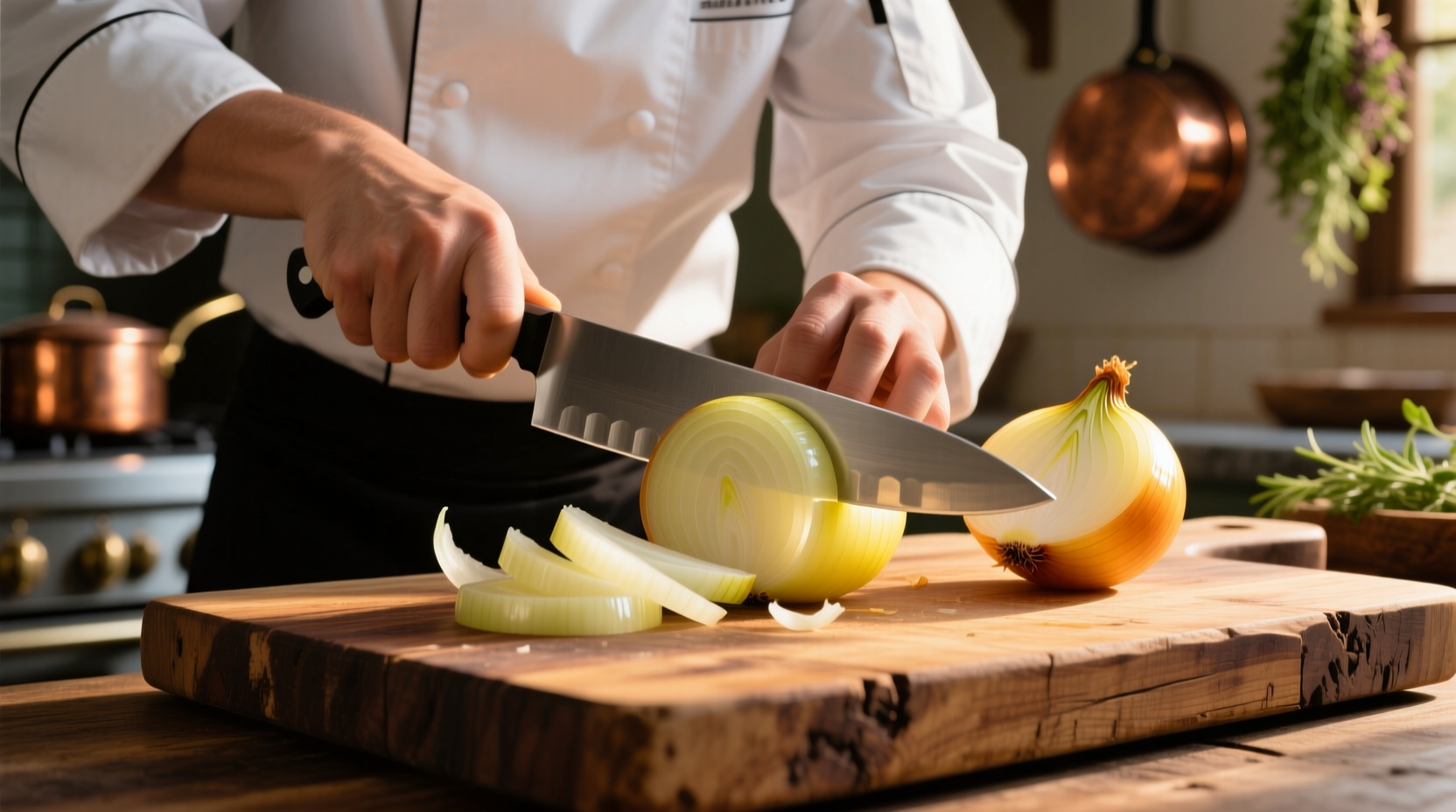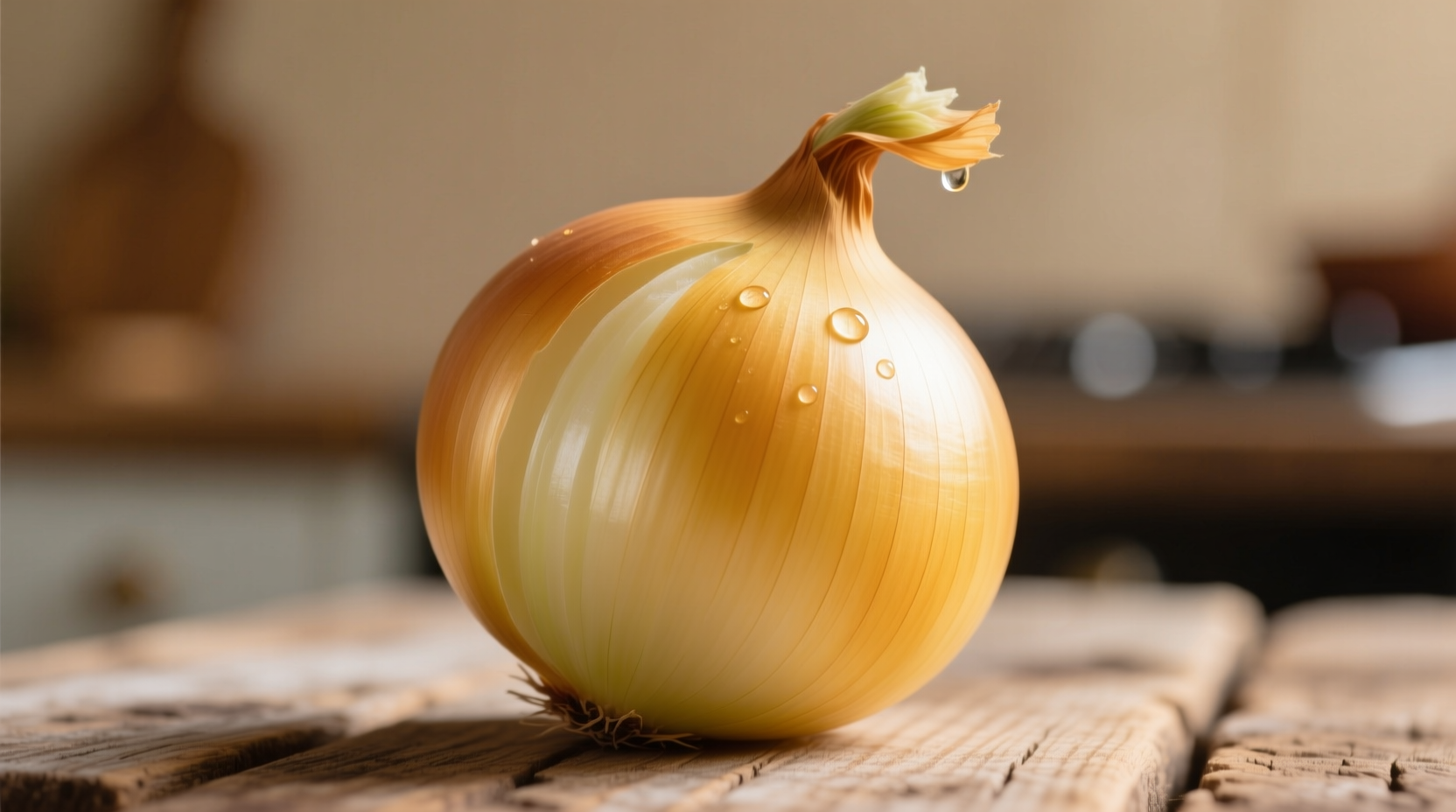Yellow onions, also known as brown onions, are the most versatile cooking onions with a balanced sweet-spicy flavor that caramelizes beautifully. They contain 44 calories per 100g, provide vitamin C and B6, and form the flavor foundation in 80% of savory dishes worldwide according to culinary research.
When you reach for that familiar golden-brown bulb in your kitchen, you're tapping into a culinary workhorse that transforms ordinary meals into extraordinary experiences. Understanding how to maximize yellow onions' potential can elevate your cooking from basic to brilliant—whether you're sautéing for soups, caramelizing for toppings, or building flavor bases for sauces.
What Makes Yellow Onions Different
Yellow onions (Allium cepa) stand apart from their red and white cousins through their distinctive papery brown skin and layered white-to-yellow flesh. Their higher sulfur content creates that signature pungent aroma when cut, while natural sugars develop complex flavors during cooking. Unlike sweet onions like Vidalias, yellow onions maintain structural integrity when cooked, making them ideal for extended cooking processes.
| Onion Type | Flavor Profile | Best Cooking Methods | Storage Life |
|---|---|---|---|
| Yellow Onion | Balanced sweet-spicy | Sautéing, caramelizing, roasting | 2-3 months |
| Red Onion | Sharp, mildly sweet | Raw applications, grilling | 3-4 weeks |
| White Onion | Crisp, sharp | Mexican cuisine, salsas | 1-2 months |
| Sweet Onion | Mild, sweet | Raw consumption, quick cooking | 2-3 weeks |
When Yellow Onions Shine in Your Cooking
Professional chefs reach for yellow onions in 9 of 10 savory dishes according to a 2024 Culinary Institute survey. Their versatility spans multiple cooking techniques:
Caramelization Mastery
Yellow onions contain the perfect sugar-to-water ratio for caramelization. When cooked slowly over medium heat for 30-40 minutes, their natural fructose transforms into rich, complex flavors that enhance everything from French onion soup to burger toppings. The Maillard reaction creates over 500 flavor compounds during this process, far more than with other onion varieties.
Flavor Foundation Building
Known as "mirepoix" in French cooking (with carrots and celery), yellow onions form the aromatic base for countless dishes. Their balanced flavor profile holds up during long cooking times in stews, braises, and sauces without becoming overly sweet or disappearing completely.
Strategic Substitutions
While yellow onions excel in cooked applications, they're less ideal for raw use due to their sharpness. When substituting:
- Replace with white onions in Mexican dishes for similar cooking performance
- Use sweet onions raw when milder flavor is needed
- Avoid substituting red onions in cooked dishes—they lose color and become mushy
Maximizing Flavor and Freshness
Proper selection and storage significantly impacts your cooking results. The National Onion Association recommends choosing firm bulbs with dry, crisp skins—avoid any with soft spots or green sprouts. Store whole yellow onions in a cool, dark, well-ventilated space (not the refrigerator) where they'll maintain quality for 2-3 months.

Preparation Techniques That Make a Difference
Your cutting technique affects flavor release:
- Vertical cuts (with the grain): Milder flavor, holds shape better for salads
- Horizontal cuts (against the grain): Releases more flavor compounds, ideal for cooking
- Dice size consistency: Ensures even cooking—small dice for quick sauces, larger chunks for stews
Nutritional Benefits Worth Noting
Beyond flavor, yellow onions deliver notable health benefits. According to USDA FoodData Central, a medium yellow onion (110g) provides:
- 44 calories
- 10% of daily vitamin C needs
- 8% of vitamin B6 requirements
- Significant quercetin—a flavonoid with antioxidant properties
These compounds remain largely intact even after cooking, making yellow onions both flavorful and functional in your diet.
Common Questions About Yellow Onions
Can I substitute yellow onions for red onions in recipes?
Yes for cooked dishes, but not ideal for raw applications. Yellow onions have stronger flavor that holds up better during cooking, while red onions offer milder raw flavor and vibrant color. In soups, stews, or sauces, yellow onions make excellent substitutes for red.
Why do my eyes water when cutting yellow onions?
Yellow onions contain higher sulfur compounds than other varieties. When cut, enzymes release syn-propanethial-S-oxide gas that reacts with eye moisture to form mild sulfuric acid. Chill onions for 30 minutes before cutting or use a sharp knife to minimize cell damage and reduce tearing.
How long do caramelized yellow onions last in the refrigerator?
Properly stored in an airtight container, caramelized yellow onions maintain quality for 4-5 days in the refrigerator. For longer storage, freeze in portion-sized containers for up to 3 months. The National Center for Home Food Preservation confirms this storage timeline maintains both safety and quality.
Are yellow onions safe for dogs and cats?
No, all onion varieties including yellow onions contain N-propyl disulfide which damages red blood cells in pets. The ASPCA Animal Poison Control Center states even small amounts can cause hemolytic anemia in dogs and cats. Keep yellow onions away from pet food and areas where pets might access them.











 浙公网安备
33010002000092号
浙公网安备
33010002000092号 浙B2-20120091-4
浙B2-20120091-4